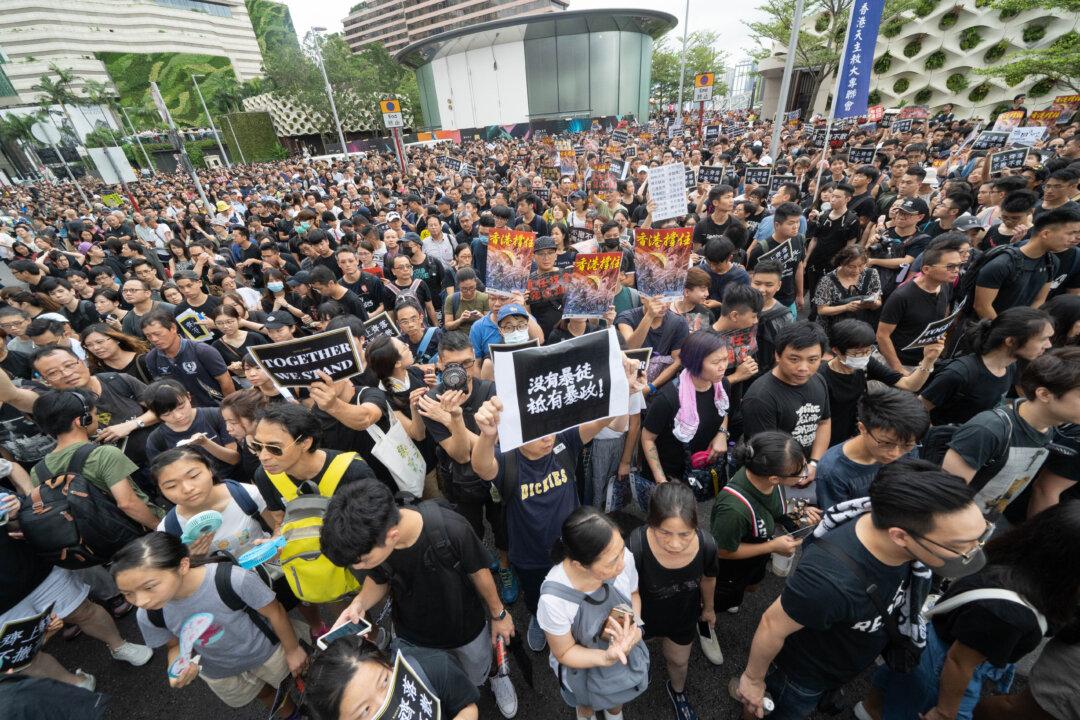After Hong Kong leader Carrie Lam announced at a July 9 press conference that a controversial extradition bill was effectively “dead” but refused to withdraw it, local lawmakers, civil groups, and international organizations criticized her rejection of protesters’ demands.
In a statement released after Lam’s remarks, the Civil Human Rights Front (CHRF), the organizer behind three marches in the last month attended by millions of Hongkongers, said it would continue to hold protests and rallies, as Lam has again ignored the people’s demands.





